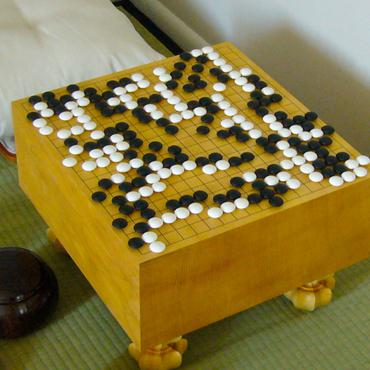Search Results for author: WaiChing Sun
Found 17 papers, 2 papers with code
Physics-Informed Diffusion Models
no code implementations • 21 Mar 2024 • Jan-Hendrik Bastek, WaiChing Sun, Dennis M. Kochmann
We present a framework to inform denoising diffusion models on underlying constraints on such generated samples during model training.
Prediction of Effective Elastic Moduli of Rocks using Graph Neural Networks
1 code implementation • 30 Oct 2023 • Jaehong Chung, Rasool Ahmad, WaiChing Sun, Wei Cai, Tapan Mukerji
This study presents a Graph Neural Networks (GNNs)-based approach for predicting the effective elastic moduli of rocks from their digital CT-scan images.
Discovering interpretable elastoplasticity models via the neural polynomial method enabled symbolic regressions
no code implementations • 24 Jul 2023 • Bahador Bahmani, Hyoung Suk Suh, WaiChing Sun
A post-processing step is then used to re-interpret the set of single-variable neural network mapping functions into mathematical form through symbolic regression.
Synthesizing realistic sand assemblies with denoising diffusion in latent space
no code implementations • 7 Jun 2023 • Nikolaos N. Vlassis, WaiChing Sun, Khalid A. Alshibli, Richard A. Regueiro
In this paper, we introduce a denoising diffusion algorithm that uses a set of point clouds collected from the surface of individual sand grains to generate grains in the latent space.
Denoising diffusion algorithm for inverse design of microstructures with fine-tuned nonlinear material properties
no code implementations • 24 Feb 2023 • Nikolaos N. Vlassis, WaiChing Sun
The results of this study indicate that the denoising diffusion process is capable of creating microstructures of fine-tuned nonlinear material properties within the latent space of the training data.
Design of experiments for the calibration of history-dependent models via deep reinforcement learning and an enhanced Kalman filter
no code implementations • 27 Sep 2022 • Ruben Villarreal, Nikolaos N. Vlassis, Nhon N. Phan, Tommie A. Catanach, Reese E. Jones, Nathaniel A. Trask, Sharlotte L. B. Kramer, WaiChing Sun
This new data leads to a Bayesian update of the parameters by the KF, which is used to enhance the state representation.
Geometric deep learning for computational mechanics Part II: Graph embedding for interpretable multiscale plasticity
no code implementations • 30 Jul 2022 • Nikolaos N. Vlassis, WaiChing Sun
The history-dependent behaviors of classical plasticity models are often driven by internal variables evolved according to phenomenological laws.
MD-inferred neural network monoclinic finite-strain hyperelasticity models for $β$-HMX: Sobolev training and validation against physical constraints
no code implementations • 29 Nov 2021 • Nikolaos N. Vlassis, Puhan Zhao, Ran Ma, Tommy Sewell, WaiChing Sun
We present a machine learning framework to train and validate neural networks to predict the anisotropic elastic response of the monoclinic organic molecular crystal $\beta$-HMX in the geometrical nonlinear regime.
Training multi-objective/multi-task collocation physics-informed neural network with student/teachers transfer learnings
no code implementations • 24 Jul 2021 • Bahador Bahmani, WaiChing Sun
This paper presents a PINN training framework that employs (1) pre-training steps that accelerates and improve the robustness of the training of physics-informed neural network with auxiliary data stored in point clouds, (2) a net-to-net knowledge transfer algorithm that improves the weight initialization of the neural network and (3) a multi-objective optimization algorithm that may improve the performance of a physical-informed neural network with competing constraints.
Data-driven discovery of interpretable causal relations for deep learning material laws with uncertainty propagation
1 code implementation • 20 May 2021 • Xiao Sun, Bahador Bahmani, Nikolaos N. Vlassis, WaiChing Sun, Yanxun Xu
This paper presents a computational framework that generates ensemble predictive mechanics models with uncertainty quantification (UQ).
Equivariant geometric learning for digital rock physics: estimating formation factor and effective permeability tensors from Morse graph
no code implementations • 12 Apr 2021 • Chen Cai, Nikolaos Vlassis, Lucas Magee, Ran Ma, Zeyu Xiong, Bahador Bahmani, Teng-Fong Wong, Yusu Wang, WaiChing Sun
Comparisons among predictions inferred from training the CNN and those from graph convolutional neural networks (GNN) with and without the equivariant constraint indicate that the equivariant graph neural network seems to perform better than the CNN and GNN without enforcing equivariant constraints.
An accelerated hybrid data-driven/model-based approach for poroelasticity problems with multi-fidelity multi-physics data
no code implementations • 30 Nov 2020 • Bahador Bahmani, WaiChing Sun
We present a hybrid model/model-free data-driven approach to solve poroelasticity problems.
Sobolev training of thermodynamic-informed neural networks for smoothed elasto-plasticity models with level set hardening
no code implementations • 15 Oct 2020 • Nikolaos N. Vlassis, WaiChing Sun
We introduce a deep learning framework designed to train smoothed elastoplasticity models with interpretable components, such as a smoothed stored elastic energy function, a yield surface, and a plastic flow that are evolved based on a set of deep neural network predictions.
A non-cooperative meta-modeling game for automated third-party calibrating, validating, and falsifying constitutive laws with parallelized adversarial attacks
no code implementations • 13 Apr 2020 • Kun Wang, WaiChing Sun, Qiang Du
The evaluation of constitutive models, especially for high-risk and high-regret engineering applications, requires efficient and rigorous third-party calibration, validation and falsification.
Geometric deep learning for computational mechanics Part I: Anisotropic Hyperelasticity
no code implementations • 8 Jan 2020 • Nikolaos Vlassis, Ran Ma, WaiChing Sun
To ensure smoothness and prevent non-convexity of the trained stored energy functional, we introduce a Sobolev training technique for neural networks such that stress measure is obtained implicitly from taking directional derivatives of the trained energy functional.
A cooperative game for automated learning of elasto-plasticity knowledge graphs and models with AI-guided experimentation
no code implementations • 8 Mar 2019 • Kun Wang, WaiChing Sun, Qiang Du
We introduce a multi-agent meta-modeling game to generate data, knowledge, and models that make predictions on constitutive responses of elasto-plastic materials.
Meta-modeling game for deriving theoretical-consistent, micro-structural-based traction-separation laws via deep reinforcement learning
no code implementations • 24 Oct 2018 • Kun Wang, WaiChing Sun
This paper presents a new meta-modeling framework to employ deep reinforcement learning (DRL) to generate mechanical constitutive models for interfaces.






